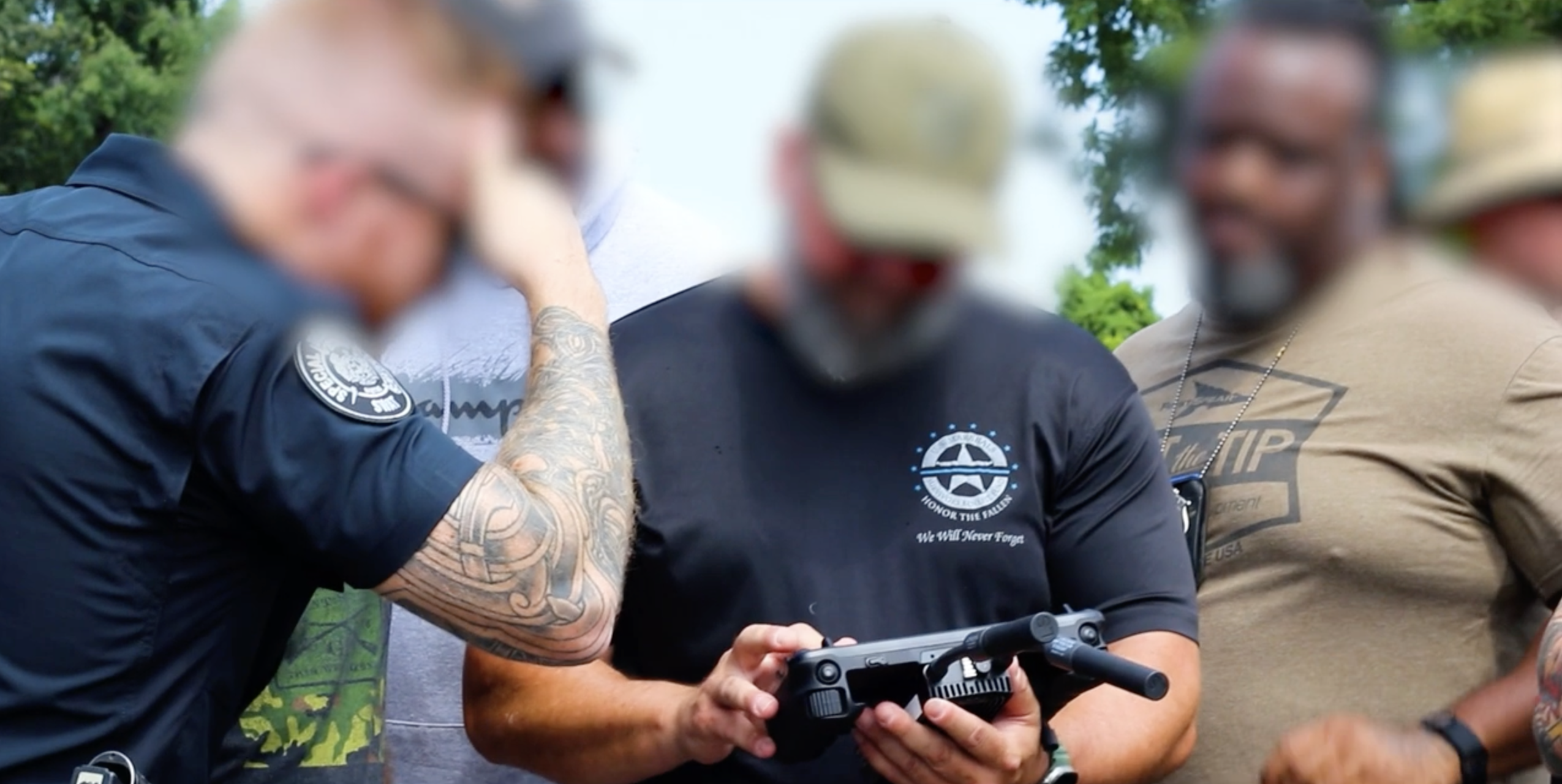
A St. Louis company that makes low-profile, modular drones has landed several government contracts, totaling what it says is worth millions of dollars.
WingXpand, which makes low-profile drones that fit in a backpack, said this week that it had secured contracts with the U.S. Special Operations, the U.S. Army, the U.S. Navy and other civilian "civil customers." This comes as the federal government is looking to domesticate the production of drones, with the White House saying in a June memo that it was pushing for "American drone dominance." Company President and co-founder Michelle Madaras said the firm could not disclose many specifics of the deals.
"This is really big for us," she said in an interview Wednesday. "Obviously, these types of contracts take a long time before they're I's dotted, T's crossed, so we're actively in work on the Special Operations and the Army contracts that we won. These are very big ones."
The company's drones include onboard AI integration, along with modular payloads, which refers to the equipment attached to a drone. For Special Operations, the company will be making "speciality, mission-tailored payloads," Madaras said. It also has worked with the U.S. Army before, she said.
The contract with the U.S. Navy is in partnership with Ranken Technical College, the release said, and it's for drone maintenance, workforce development and domestic manufacturing. The company is headquartered at Ranken's Robert W. Plaster Free Enterprise Center in north St. Louis. The partnership is intended to make their drones easier to repair in the field, Madaras said, preparing people for greater adoption of their product by training them in how to repair the company's drones.
Along with those federal contracts, WingXpand also was approved to provide drones to the State of Montana, it said in a release, as the state pushes for U.S.-made drone technologies. WingXpand said in May that 20 states have banned, or are considering a ban on, foreign-made drones. The U.S. Department of Commerce in January proposed a blanket ban on all drones made in China, which account for around 75% of America's drone market, according to the New York Times.
Madaras also said that, in the past several years, "red tape" has made widespread adoption of drones like theirs difficult, with guidelines at federal agencies treating lower-profile products as similar to the F-16 aircraft. But changing priorities at the federal level have made it easier for a company like WingXpand to fulfill needs at the governmental level, she added.
"I think that the tides are really starting to turn," she said of changes to the government's treatment of their drones. "They're unlocking some of that bureaucratic process in order to enable that. From our customer side, I think that's incredibly instrumental. It'll get them the tools that they need out in the field faster, and that allows companies like us to be able to scale faster."
She cited federal agencies like the U.S. Department of Homeland Security and the U.S. Department of Energy as examples of government entities that were warming up to their products.
The company's drones are partially 3D printed and manufactured domestically. Its AI-powered xRAI and xRAID drones start at $14,900, a price that puts them between consumer-grade drones and existing military-grade technologies. WingXpand also markets its drones to law enforcement and public safety agencies as providing the functionality of a helicopter, with a device that can be "deployable from a vehicle trunk — without requiring a traditional pilot, hangar, or six-figure flight budget."
The company has previously seen public sector adoption, landing a "seven-figure" deal with the U.S. Air Force for wildfire detection in 2023, the same year it landed $500,000 in a pre-seed funding round. It projects to manufacture 1,000 drones per month by the end of the year. The company has around 15 employees, Madaras said, and is currently looking to hire multiple engineers.
“This is about more than drones; We’re redefining who can access highly capable robotics, proudly built in America,” company CEO and co-founder James Barbieri said in the release. “We’re supporting frontline teams from soldiers to first responders with trusted, adaptable tools they’ve long needed."